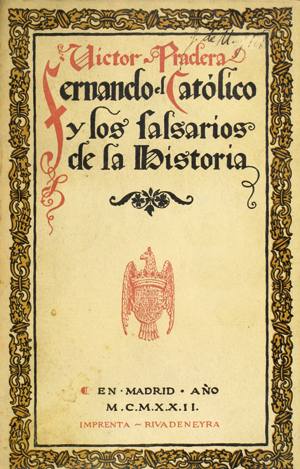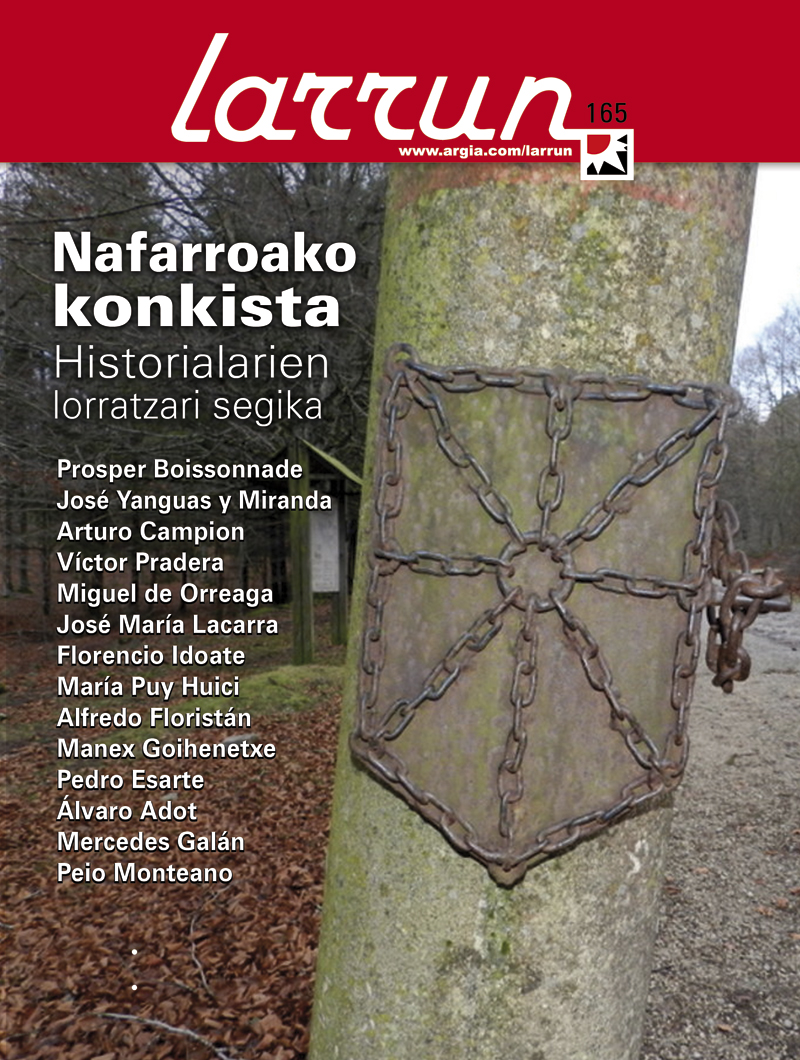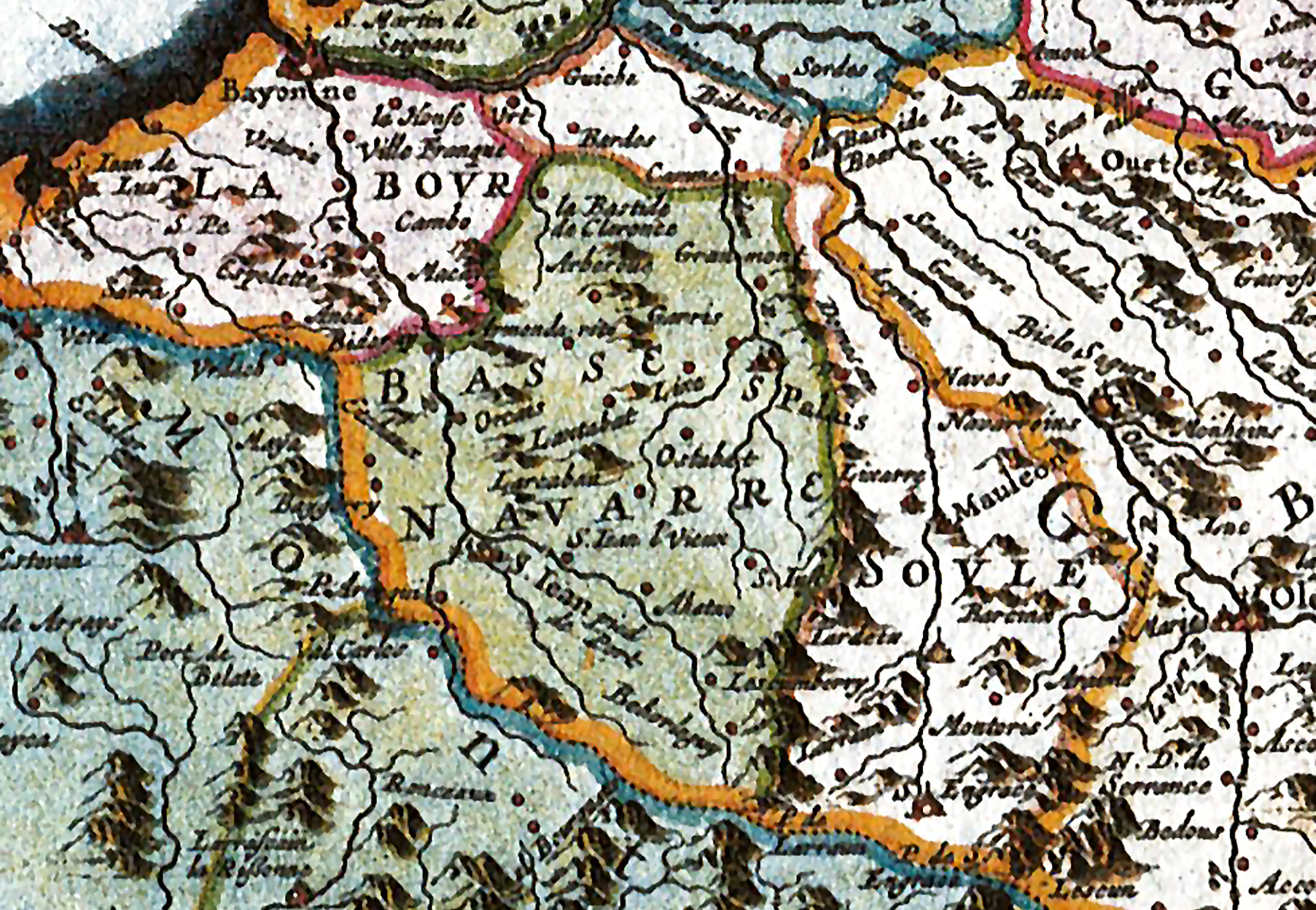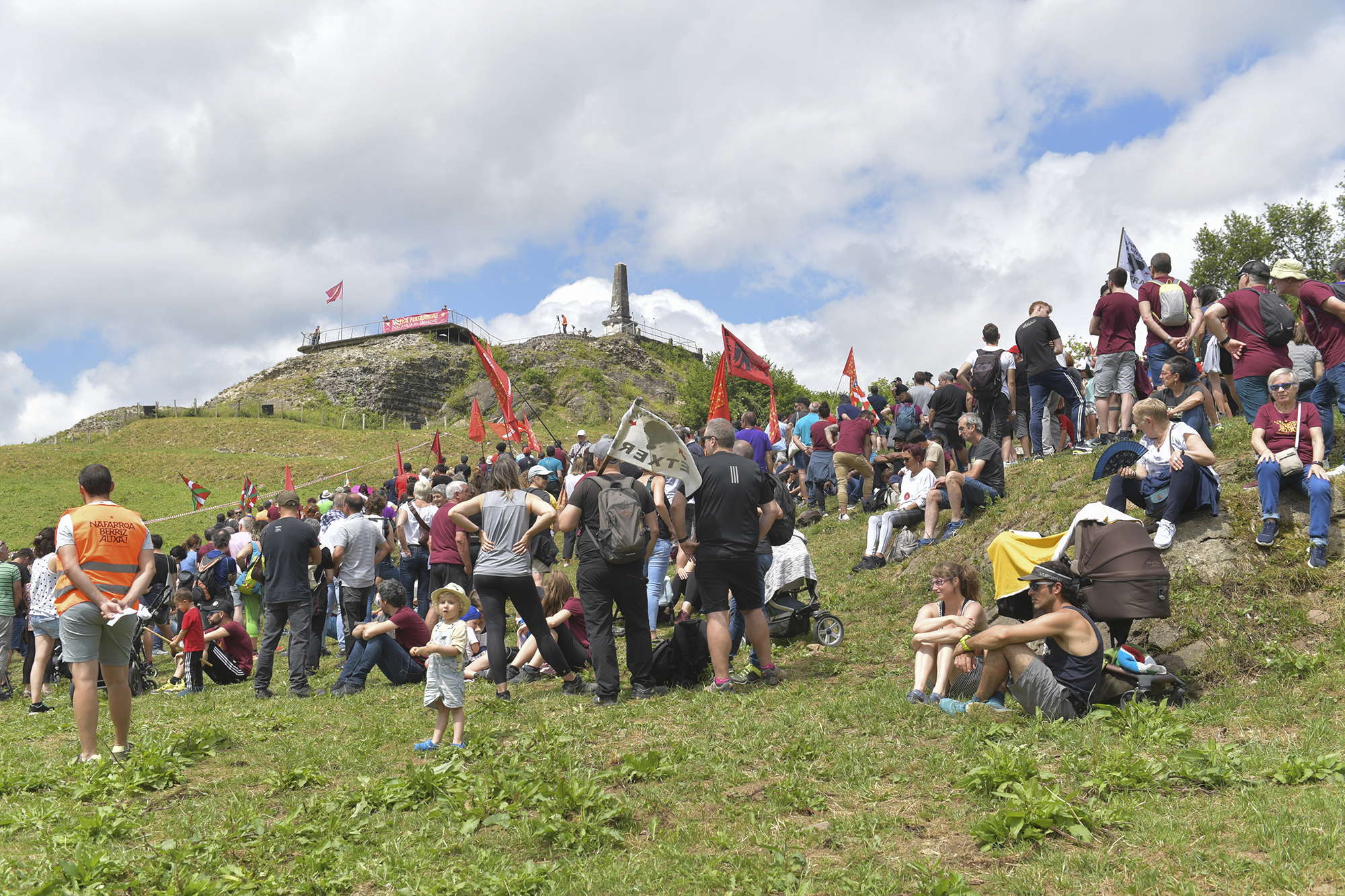"You will be more Navarre if you are more united to Spain"

Pradera studied engineer and lawyer, but was fully integrated into politics. Starting from the carlism of Vázquez de Mella, he came to a fascist traditionalism, and he was the strongest in the defense of Spain in Navarre. But Pradera was, above all, anti-nationalist. On January 6, 1921, at the Spanish Catholic Center of Pamplona, the agramontes betrayed Navarre and Spain. These words created a storm, as the response of the Abertzales (Campion, Aranzadi, Oloriz, Baleztena…) was immediate.
The fruit of this controversy he wrote his most famous work: Fernando el Cátolico y los falsarios de la Historia, published in 1922 and awarded by the Academy of History. The best seller was sold in a tough one. In it, Pradera tries to justify the conquest by claiming that the Exigit Contumacium that the Pope wrote against the Navarros kings was true. John II.ak was expelled from John of Albret and Catherine of Foix, which Fernando the Catholic took advantage of to conquer. Pradera ' s goal was to reclaim Spain ' s unity in the peace process.
The polemical historian touched him to live in convulsive times. II. In the Republic he fought against the Basque Statute, as Jimeno Jurio said, doing hard work, even using trick, influenced by “his most Spanish feelings”. When 1936 came, the keys were over, as with the beginning of the civil war he was murdered by the anarchists.
After the end of the war, the Franco regime handed over the titles and paid tribute to the deceased. Falsarios was a reference in Franco, but it has not been republished until 2003. The following text is selected from the original work, you can consult all the work on the Internet, in the digital repository of the Provincial Council of Gipuzkoa or at the following address: http://bit.ly/JHJvPg
“The kings of Navarre, therefore, without any justification or excuse, prevented the dismissal of them seven times with total ingratitude towards Fernando the Catholic, voluntarily and freely put themselves in a state of war against the Catholic King or, in his words, made a league with the King of France, not only to avoid that company (the invasion of Guiena) 5, but also to do the greatest possible damage.” And in such a state they could not escape the laws of war, that is, invasion and conquest. (...) Dear
Navarre 6: reflect, listen, these last words… In your ears, in contrast to what the liars of history say, the story says that Navarre will be more if you are more united to Spain”.
Immersed in the war against the community lords and churches, in 1521, Castile obtained the help of his brother-in-law Enrique de Navarra II.ak, King Francisco I of France, to recover the kingdom of Navarre invaded, conquered and occupied nine years earlier.
Parents Enrike... [+]
Memoria eta aldarrikapen eguna izan da larunbatean Amikuzeko hiriburuan. "Sekulan baino gehiago, gure izanetik aurkitu indarraz, bihar gu girena hazi", izan dira Zabalik elkarteko presidentearen hitzak, Nafarroa Bizirik eguneko ekitaldi ofizialean.
The ideological heirs of the conquerors of the Kingdom of Navarra are today the political parties that manage means such as patriarchal intellectual production and EITB. These heirs continue with the colonization process of Navarre, distorting historical contexts and negating... [+]
The castle of Amaiur (1522), in Baztán, was the last strength of the resistance against the Spanish conquest of the Kingdom of Navarra. The rebels, with their courage, also dominated the kingdom of Spain, challenged by their hearts, sought to rise up against the... [+]
You will easily see Spaniards of a certain age who want to underestimate or reduce the severity of something: “More was lost in Cuba,” recalling the loss of the remains of the colonial empire in 1898. Hungarians also have a similar expression, which is used in the same sense... [+]




















